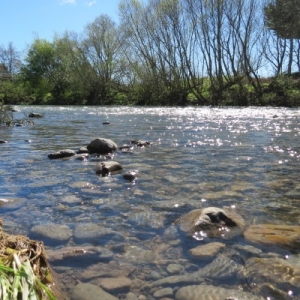FARMERS ARE welcoming proposed amendments to the National Policy Statement for Freshwater Management, released yesterday by the Government.
"What is being proposed directly comes out of the recommendations of the Land & Water Forum and represent a significant change in how communities will plan for water into the future," says Ian Mackenzie, Federated Farmers environment spokesperson.
"This is a collaborative response to what has been a collaborative process.
"It is a framework which provides an accounting system for measuring water quantity and quality. This reduces much of the subjective emotion that has typified the discussion and sets bottom lines for water quality.
"This also is about giving communities the power to set their own aspirations for water. For the first time this will be scientifically, culturally and economically informed. It won't be easy and will need some sacrifice from agriculture and urban communities alike."
Launched by Environment Minister Amy Adams and Primary Industries Minister Nathan Guy, it seeks the public's feedback on more detailed proposals for amendments to the National Policy Statement for Freshwater Management.
The discussion document seeks feedback on the Government's proposals for: 1) a national framework to support communities setting freshwater objectives; 2) explicit recognition of tangata whenua values for freshwater; 3) ecosystem and human health as compulsory values in regional plans; 4) preferred outcomes for ecosystem and human health that apply everywhere; 5) restricted grounds for exceptions to those preferred outcomes; and 6) requiring councils to account for all water takes and contaminant discharges.
Mackenzie notes that Adams rightly said some of our most polluted waterways are in our towns and cities.
It is why every New Zealander has a responsibility to play their part, he says.
"Just like some farmers may face greater restrictions, some cities and their ratepayers may face wastewater upgrades costing hundreds of millions of dollars. The thing about the proposed amendments is that it introduces the concept of time; many issues may have taken decades to build and may take decades to resolve.
"I can confidently say New Zealand's primary industries are up for this challenge.
"It is a challenge that rightly starts by giving communities the full facts. This is helped by input provided by 60 of New Zealand's foremost freshwater scientists. For the first time we can build up a picture for what the impacts are and where they are coming from.
"It will also be helped by giving communities an idea as to what the costs of water options being considered are. As long as the community goes into decisions with its eyes open, as farmers, we cannot really complain."











